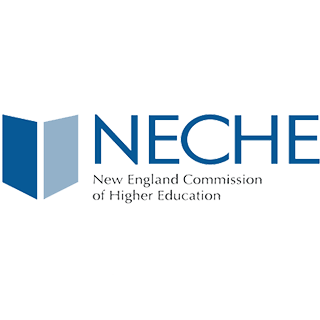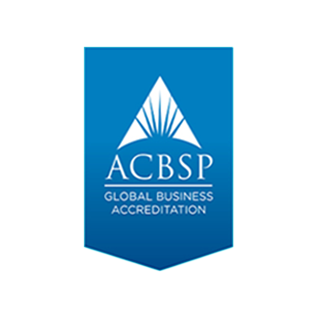For Jazzmen Shipp, Earning a Degree Changed Everything
Business | 2min Read

Technology, multigenerational workforces and the rapidly changing economic landscape are evolving the role that human resource professionals play in the bigger picture of business operations.
Our online Master of Science (MS) in Human Resource Management program is designed to equip you with skills you need to succeed in the industry today. This includes areas like creative problem-solving, data-driven decision-making, strategic management, empathy and ethics.

Gain the business acumen, industry knowledge and technical skills necessary to support an organization's vision, mission and goals. In the online master's in human resources management at SNHU, you'll take an integrated approach to developing relevant HR expertise. This means focusing on communication and negotiation skills, critical legal and ethical principles, strategic HR program development, and the global and cultural context of HR today.
The Master of Science curriculum and outcomes of the graduate program were developed in accordance with the guidelines set forth by the Society of Human Resource Management (SHRM) competencies and master's degree curriculum standards.
In your courses, you'll explore topics like labor relations and negotiations, talent acquisition and development strategies, ethical and legal problem solving, workforce planning and effective models of human resource service delivery.
Don't have a business background? No worries – this HR program is built to support students with or without prior business experience and education.
For students without a business-related undergraduate degree, this program may begin with OL-501 - Business Foundations. This course is designed to help you to understand terminology and topics that can set you up for success in the master's in human resources program.
Visit the course catalog to view the full MS in Human Resource Management curriculum.
Minimum Specifications:
Additional Information:
The Society for Human Resource Management (SHRM) has acknowledged that SNHU's MS in Human Resources Management is aligned to the Society for Human Resource Management's Body of Applied Skills & Knowledge™ (SHRM BASK™) competencies.
Developed through a series of large-scale research studies, the SHRM BASK incorporates global HR viewpoints to collectively establish a grouping of critical HR competencies and content areas.
Choose to go further and establish yourself as a globally recognized human resource expert by earning the new standard in HR certification:
These professional certifications can open doors for professional advancement, serve to harmonize standards with changing expectations and signal to employers advanced professional development.
And why would you want to earn SHRM certification? According to the organization, it's recognized across industries, and it's offered by the world's largest HR membership organization.2 With many employers seeking SHRM credentials each month, you'll likely want to enroll in a HR program that can set you up for success with SHRM.
Beyond completing education requirements for certification, you'll also complete a capstone project, which provides employers with an example of the skills you've developed throughout your online master's in human resources program. The course is structured to support student success in fulfilling program requirements.
For more information on which SNHU programs satisfy educational eligibility by jurisdiction, please visit our licensure and certification disclosure page.
Our no-commitment application can help you decide if SNHU is the right college for you and your career goals. Apply up until 2 days before the term starts!
Upcoming term starts: July 6, 2026 | September 21, 2026
Attending college online at SNHU can be a life-changing experience. In fact, 93.4% of online students would recommend SNHU according to a 2025 survey with 8,718 respondents.
Our HR management faculty are dedicated to your success. Whether they're engaging with students on discussion boards, communicating concepts and ideas or helping you explore your passions, SNHU HR management instructors will strive to make your learning experience valuable and memorable.
 Dr. Dean Gualco has served as an HR director for two California cities, the Governor of California and at the University of California, in addition to serving as a city library director. Gualco is also the author of 11 books, the last titled "The Perfect Country: The Traits and Characteristics of a Good and Decent People," and has taught at universities throughout the world for over 20 years.
Dr. Dean Gualco has served as an HR director for two California cities, the Governor of California and at the University of California, in addition to serving as a city library director. Gualco is also the author of 11 books, the last titled "The Perfect Country: The Traits and Characteristics of a Good and Decent People," and has taught at universities throughout the world for over 20 years.
Position
Adjunct Faculty Member
Joined SNHU
2018
Education
 With over two decades of teaching experience in higher education and 25 years of leadership in human resources at the C-suite level, Deborah Gogliettino brings a wealth of knowledge to the HR faculty at SNHU. Credentialed in executive coaching, Gogliettino enjoys mentoring emerging leaders. She also holds the designation of Senior Professional in Human Resources® (SPHR) from Human Resource Certification Institute® and has written about the value of continuous learning for the organization.
With over two decades of teaching experience in higher education and 25 years of leadership in human resources at the C-suite level, Deborah Gogliettino brings a wealth of knowledge to the HR faculty at SNHU. Credentialed in executive coaching, Gogliettino enjoys mentoring emerging leaders. She also holds the designation of Senior Professional in Human Resources® (SPHR) from Human Resource Certification Institute® and has written about the value of continuous learning for the organization.
Position
Associate Dean, Human Resources
Joined SNHU
2015
Education
"I entered human resources not only to solve problems and creative innovative solutions, but to play an influential role in a company's strategy. That's the fun of HR."
You’ll take your courses within SNHU’s Brightspace platform. This is where you’ll find your:

At Southern New Hampshire University, you'll have access to a powerful network of more than 400,000 students, alumni and staff that can help support you long after graduation. Our instructors offer relevant, real-world expertise to help you understand and navigate the field. Plus, with our growing, nationwide alumni network, you'll have the potential to tap into a number of internship and career opportunities.
Recently, SNHU has been nationally recognized for leading the way toward more innovative, affordable and achievable education:
Founded in 1932, Southern New Hampshire University is a private, nonprofit institution with over 250,000 graduates across the country. SNHU is accredited by the regional accreditor New England Commission of Higher Education (NECHE), which advocates for institutional improvement and public assurance of quality.
No application fee. No test scores. And no college essay. Just a simple form with basic information. It’s another way SNHU helps you reach your goals sooner.
It's easy, fast and free.
Whether you're applying for an undergraduate or graduate degree, you’ll fill out a form to verify your previous education experience. As part of our admissions process, we'll help you request transcripts from your previous school(s) to see if you can transfer any credits into your SNHU program! (Also for free!)
After reviewing your official evaluation, you can decide if SNHU is right for you! If you choose to enroll, just pick your start date and get ready for classes to begin.
Talk to an admission counselor: 888.327.SNHU | enroll@snhu.edu
SNHU is accredited by the regional accreditor the New England Commission of Higher Education (NECHE). The university also carries specialized accreditations for some programs.
This program is accredited by the Accreditation Council for Business Schools and Programs (ACBSP). Student achievement data can be found on the ACBSP accreditation page.


As a nonprofit university, SNHU offers some of the lowest online tuition rates in the country. And when you work with our Financial Services team, we'll explore ways to help you save even more on your education – and customize a payment plan that works for you.
*before previously earned credits are applied
Tuition rates are subject to change and are reviewed annually.
**Note: Students receiving this rate are not eligible for additional discounts.
Additional costs: Course materials vary by course.
If 3 of your prior learning credits ($659/credit) are accepted toward your master’s degree.
Your remaining tuition cost: $21,747
If 6 of your prior learning credits ($659/credit) are accepted toward your master’s degree.
Your remaining tuition cost: $19,770
If 9 of your prior learning credits ($659/credit) are accepted toward your master’s degree.
Your remaining tuition cost: $17,793
If 12 of your prior learning credits ($659/credit) are accepted toward your master’s degree.
Your remaining tuition cost: $15,816
How we estimate your tuition cost:
We look at the cost per credit multiplied by the number of credits you need to earn for a master's degree. Most master's degrees require 36 credits. SNHU allows you to transfer in up to 12 credits, requiring a minimum of 24 credits to be taken at SNHU. This is only a tuition estimator and doesn't account for other fees that may be associated with your program of choice.
Transfer credits toward your master's degree program at SNHU. If you’ve taken one course or many, we’ll evaluate them for you.
Fill out the FAFSA to see if you’re eligible for grants or work-study. (You could also be offered loans, though you’ll have to pay those back later.)
Earn credits in leadership, technology and more – while taking advantage of an online graduate tuition discount for active-duty service members and spouses.
Getting free money for college – from SNHU or an outside organization – could help you save hundreds or even thousands of dollars.
Bring in credits from popular options like CLEP, Sophia Learning, Google and other common credit for prior learning (CPL) experiences.
Learn how you can save money with tuition reimbursement from your employer.
Take advantage of an online tuition discount through your organization’s partnership with SNHU. Check with your employer to see if your organization partners with us and if you’re eligible for additional tuition savings and partner education benefits.
By enrolling in the online master's in human resource management program, you can equip yourself with knowledge and skills needed to enter management-level positions in human resources and related business professions.
As an HR leader, you'll work to align the employee experience with organizational goals – helping individuals and the business grow. In a human resource manager role, you might gather and analyze business data, establish efficient operational processes, develop hiring strategies, design talent development strategies, lead equity and diversity initiatives and more.
As an HR manager, you could find yourself working in almost any industry. Here are a few:
Help train educators and administrators to make positive impact on education systems and services.
Help people discover their passions, find their careers or advance in their current careers.
Promote team-building, collaboration, and better communication for teams large and small.
Help strategize ways to help people work together more efficiently so they can better serve communities.
Make an impact in communities and healthcare setting by helping to hire, manage and train staff.
Be "the people person" at large-scale and enterprise companies, overseeing hiring and training programs.
Median annual pay nationally for HR managers as of May 2023, according to the U.S. Bureau of Labor Statistics.1 Statistic not based on wage data for SNHU graduates.
Median annual pay nationally for training and development managers as of May 2023, according to the BLS.1 Statistic not based on wage data for SNHU graduates.
Understanding the numbers
When reviewing job growth and salary information, it’s important to remember that actual numbers can vary due to many different factors—like years of experience in the role, industry of employment, geographic location, worker skill and economic conditions. Cited projections are based on Bureau of Labor Statistics data, not on SNHU graduate outcomes, and do not guarantee actual salary or job growth.

There are a few graduate-level degree options for people interested in human resources. Two popular pathways are the MS in Human Resource Management and the Master of Business Administration (MBA).
If you're sure that human resources is the field that you want to grow in, a master's in HR management might be the way to go. These programs are tailored specifically to the industry, helping you gain hyper-relevant knowledge and skills.
Alternatively, you could enroll in an MBA program with an HR focus. This would allow you to get a well-rounded business education while taking classes specifically tailored toward human resource professionals.
Southern New Hampshire University offers both of these programs online. Our MS in Human Resource Management and online MBA in Human Resources programs are accredited by the Accreditation Council for Business Schools and Programs (ACBSP) and are aligned with the Society of Human Resource Management's (SHRM) competencies and master's degree curriculum standards.
Learn more about what degree you need for a career in HR.
The length of an HR master's program can vary based on how many credits are required, how many courses you can take per term and whether or not you have transfer credits.
At Southern New Hampshire University, the master's in HR program is 36 credits. You could complete the program in about 2.5 years by taking one course each term. If you wanted to complete the program faster, you could take two courses each term, helping you earn your degree in just over a year.
If you have previous graduate credits, you may be able to finish even faster by transferring up to 12 credits toward your MS in Human Resource Management.
Learn more about how you can earn an online degree at your pace.
The cost of getting a master's degree in HR can vary, but if you're looking for an affordable and convenient option, you may want to consider looking at online programs.
Southern New Hampshire University offers some of the lowest online tuition rates in the U.S. At $659 per credit, tuition for the 36-credit HR master's program is $23,724. (Fees and course materials not included. Tuition rates are subject to change and are reviewed annually.)
Learn more about how to pay for college.
If you have a passion for helping lead an organization in the right direction, then yes.
With a master’s in human resource management, you’ll learn to approach HR initiatives from a strategic and data-driven perspective and understand how HR impacts organizations on every level.
Many human resources jobs require at least a bachelor’s degree in human resources or related field, and leadership positions more often require a master's degree. Earning a master’s in human resources online can help you stand out when applying for new roles or promotions.
According to the U.S. Bureau of Labor Statistics (BLS), job opportunities for human resources managers are projected to grow 5% through 2032, as new companies form and existing organizations work to adhere to changing and complex employment laws and regulations.1
The benefits of earning your master's in human resource management go beyond your career. For Nancy Glasheen 21G, getting her online MS in Human Resources Management degree has opened doors within the SNHU community. "The open doors for me included allowing for a bigger identity footprint with other students, the SNHU Alumni community, and exposure to the National Society for Leadership and Success."
Learn more about why a degree in human resources can be worth your investment.
In 2023, the median annual wage for human resources managers was $136,350, according to data from the U.S. Bureau of Labor Statistics (BLS).1
In addition to HR manager roles, you can also be well compensated as a training and development manager. The BLS notes the annual median wage in 2023 as $125,040.1
BLS data shows that master's degree holders tend to have higher earnings than those with less education. In 2023, master’s degree holders’ median weekly earnings were approximately 16% higher than bachelor’s degree holders and approximately 64% higher than associate degree holders, according to BLS.1
While human resources was once considered a mostly administrative role with a focus on payroll and benefits, HR professionals today are more often recognized as strategic partners and valued members of company leadership.
Changes in technology, a multigenerational workforce and a rapidly changing economic landscape have all contributed to the evolving role of human resources professionals.
In addition to overseeing the HR department and serving as a key connection between employees and upper management, today’s human resources managers often have many other roles. These roles include managing compensation and benefits, overseeing talent development and training programs, and guiding overall employee wellness and support.
Plus, with an HR degree, you have the potential to go anywhere you want to go. That includes:
Human resources leaders are also key to an organization’s ability to recruit and retain key personnel who contribute to moving the organization forward in today’s evolving workforce.
“HR professionals are partners with the business,” said Deborah Gogliettino, associate dean of human resources at SNHU. “That has tremendous value for the organization and for the person doing the job.”
Human resources professionals are needed across nearly every industry and organization. Job opportunities for HR workers are available in large corporations, small businesses, nonprofits and government agencies at the federal, state and local level.
Some human resources jobs1 you may explore include:
Learn more about what you can do with a master's in human resources.
The Society for Human Resource Management (SHRM) offers two professional certifications for human resources leaders: the SHRM - Certified Professional (SHRM-CP) and SHRM - Senior Certified Professional (SHRM-SCP).
According to SHRM, both certifications directly link to on-the-job scenarios faced by HR professionals.2 Earning a certification indicates a high level of industry knowledge and skills and demonstrates that you can apply this knowledge on the job. SHRM certified human resources professionals are considered experts in the HR field and are highly sought after by employers.
Eligibility for both the SHRM-CP and SHRM-SCP requires at least a bachelor’s degree in human resources or an approved related field, as well as varying years of experience working in human resources.
But as a master's degree holder, you get an extra benefit with SHRM – especially if you're just entering the field. That's because the more HR education you have, the less experience you need to be eligible to take the exam.2 In fact, just having a graduate degree and being in an HR role gives you this opportunity.
SNHU’s master’s in human resources program aligns with SHRM competencies, including employee and labor relations, legal and ethical issues, recruitment and technology, and the changing workforce. Earning a master’s degree in human resources from SNHU can help prepare you to sit for the SHRM certification exams.
1Bureau of Labor Statistics, U.S. Department of Labor, Occupational Outlook Handbook, on the internet, at:
Cited projections may not reflect local or short-term economic or job conditions and do not guarantee actual job growth.
2Society for Human Resource Management, on the internet, at https://www.shrm.org/credentials/certification (viewed April 19, 2024)